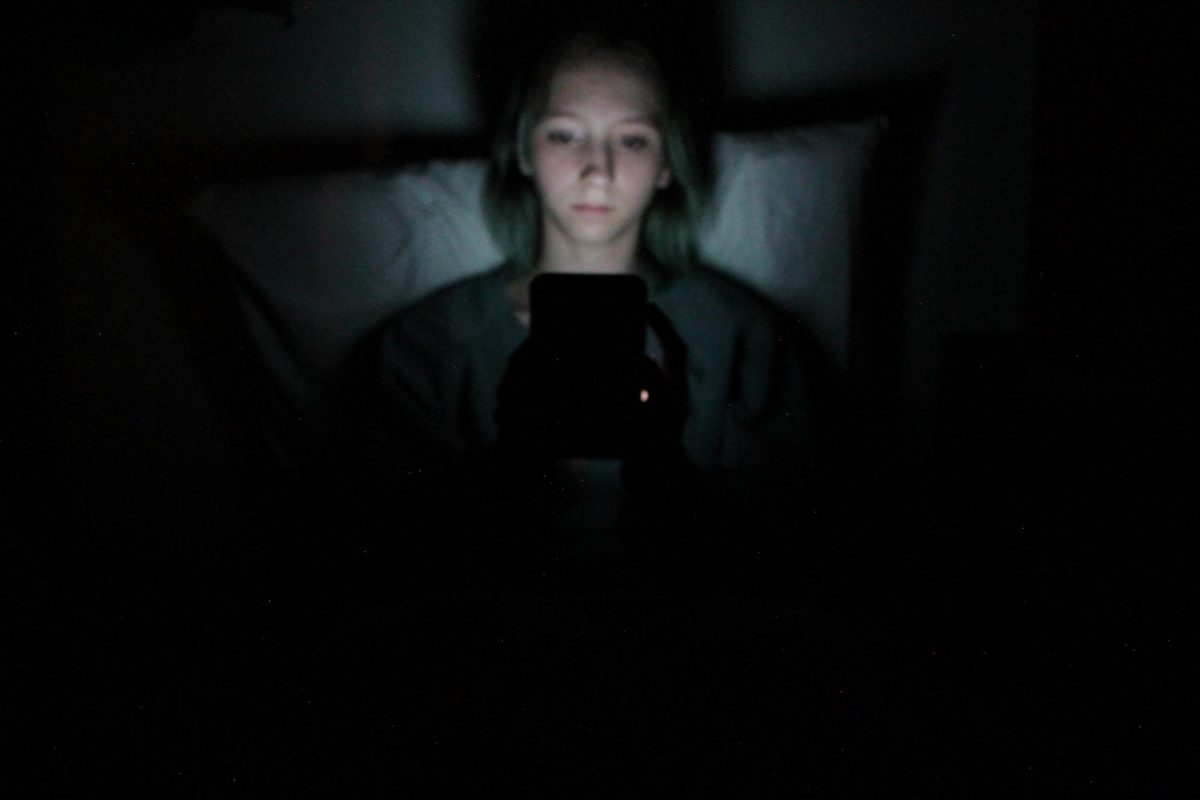The Cycle of Doom-Scrolling
Students often can’t tell how long they’re spending on their phones, resulting in their screen times being much higher than they thought. “Frankly, there’s so much content out there. And it’s just a never-ending stream of information,” junior Miles Nevener said.
According to Trevor Haynes of Harvard University, notifications trigger an unlimited amount of social stimuli, which releases dopamine. This creates a cycle: the longer you’re on your phone, the more dopamine gets released. There are jobs in social media management created specifically to make money by getting people to stay on their apps.
“Experts in psychology and technology sit around a table and think how can we get people to pay attention?” psychology teacher Janelle Smith said.
Disrupting Sleep Patterns
Phones have become the last thing teens look at when they go to bed and the first thing they look at when they wake up.
“People tend to have worse sleep when they fall asleep next to their phones,” psychology teacher Janelle Smith said.
According to a National Library of Science study, if you are on your phone for 30 minutes before bed, your quality of sleep worsens.
In order to solve this problem, students can train themselves to create a calming environment with low lighting, cleanliness, and no electronics in their room.
“We can train your body to be like ‘I’m in my room. It’s time to rest and sleep.’ If you create this space that’s chaotic, then your body responds to that,” Smith said.
When students have their phones in this proximity, it’s easy to check notifications and develop a habit. But if students create a less over stimulating situation, they’ll not only get more sleep, but learn to regulate themselves without endless scrolling.









